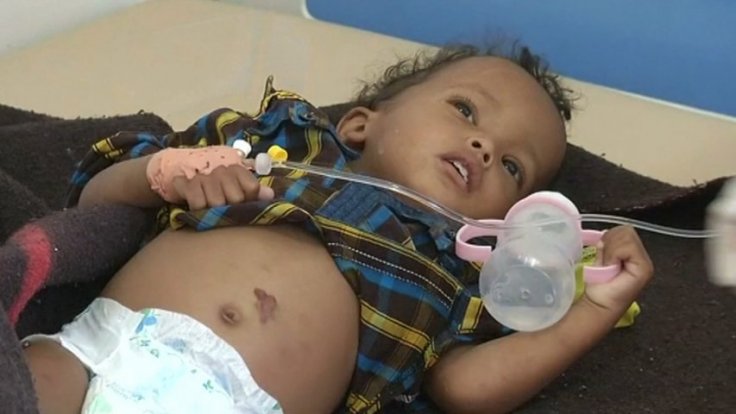As the world battles with the onslaught of growing coronavirus pandemic, which has so far infected more than 3.3 million people globally, the war-battered Gulf nation of Yemen seems to be battling its own epidemic.
According to a report by the United Nations Office for the Coordination of Humanitarian Affairs (OCHA), the UNICEF (United Nations Children's Fund) has recorded more than 110,000 suspected cases of cholera in Yemen since the beginning of 2020.
Children below the age of five worst affected
The suspected cases were recorded across 290 of Yemen's 331 districts since January this year and more than 25 percent of the cases have been children under the age of five, the OCHA said in a statement on Twitter.
Yemen's cholera outbreak

The cholera outbreak which began in Yemen in October 2016 has infected over one million people and resulted in the death of more than 2,000 from 2017 to 2019. Yemen is facing what UN aid agencies described as the biggest humanitarian crisis in modern history ever since the Saudi-led US-backed conflict with the Houthis broke out in March 2015.
Yemen's coronavirus deaths
Meanwhile, the latest news comes just days after the poorest of the Gulf countries recorded its first two deaths from the coronavirus late last month after it recorded its first case of COVID-19 infection in early April.
A tragedy unfolding
Yemen is currently experiencing flash floods and the UNICEF warns that the number of cholera cases could increase in the rainy season, which began in April and could last until August. The worst affected will be children.
"More than five million children under the age of five in Yemen are facing a heightened threat of cholera and Acute Watery Diarrhoea (AWD) as the country continues to experience increased heavy rains since mid-April," Sara Beysolow Nyanti, UNICEF's representative said in a statement on May 1.
"Children in Yemen continue to face a myriad of threats to their survival. A further spread of cholera, high levels of malnutrition and outbreaks of vaccine-preventable diseases compounded by COVID-19 will only exacerbate the burden that children and their families already face," she added. She further warned that "a tragedy continues to unfold in Yemen in the full glare of the world."
Flash floods and heavy rain perfect recipe for cholera
Yemen has been experiencing heavy rains and flash floods especially in cities such as Aden, Abyan, Lahj and the country's capital Sana'a. The floods have interrupted access to safe drinking water and sanitation facilities in the country and destroyed hundreds of homes and displaced thousands, which UNICEF warns is "the perfect recipe for the spread of cholera."
However, the UNICEF has been responding to the families affected by the floods and providing them with basic hygiene kits, including disinfectants, chlorine, buckets and towels. It is also working on repairing the country's broken water infrastructure to restore access to safe drinking water for children and their families.
Broken healthcare system
The impoverished nation's five-year civil war has damaged most of its healthcare system and the fragile health institutions in the country have been struggling to contain the increasing infections of deadly epidemics including cholera, malaria and dengue.
According to UN estimates, nearly 80 percent of the population in Yemen is in need of humanitarian aid. "Without an end to the brutal five-year-old long conflict in Yemen, these devastating preventable disease outbreaks will continue to stalk the lives of many, and first and foremost vulnerable children," said Nyanti.
Coronavirus in Yemen
Meanwhile, on Friday, May 1 Yemen reported yet another new case of COVID-19 in Taiz province, bringing the total number of confirmed cases in the country to seven. Before that the country reported five cases in the Aden. The total fatalities due to COVID-19 as of May 1 remain two.








